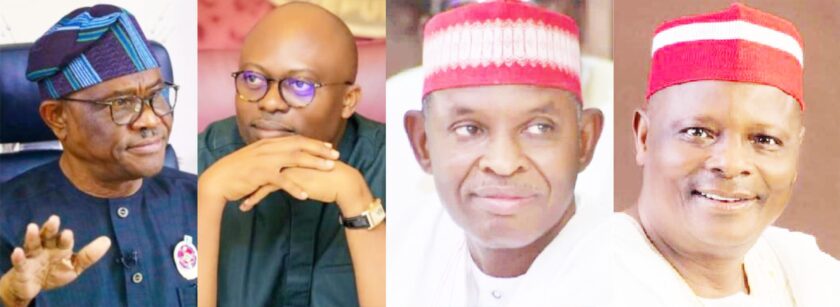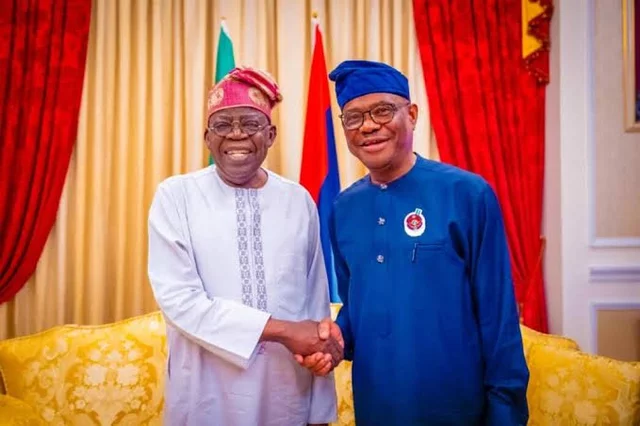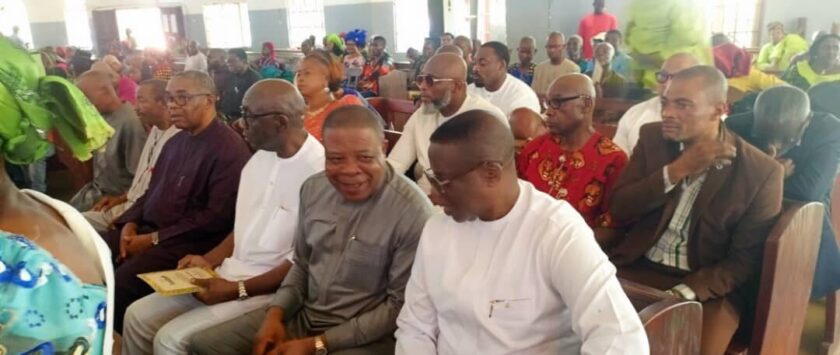
By Barr. Aja Peter Obiora. Enugu State.
In recent months, the National Assembly’s renewed push toward creating a new state, Anioma State or Etiti State, for the Southeast geopolitical zone has reignited conversations about justice, equity, and the structure of Nigeria’s federalism.
To many, this development is both commendable and long overdue. For decades, the Southeast has remained the only zone with five states, while others enjoy six or even seven. That singular shortfall has had deep and wide-ranging implications, from political representation and federal appointments to infrastructural distribution and employment opportunities.
But as we commend this bold legislative step, we must also interrogate its direction and intention. Are we creating a state for the Southeast geopolitical zone or for the Igbo ethnic group, wherever they may be found? That distinction is not a matter of sentiment; it goes to the very foundation of Nigeria’s constitutional and political order.
FROM REGIONS TO STATES: A JOURNEY OF EQUITY AND IDENTITY
Nigeria’s federal structure has never been static; it has evolved in response to political necessity, ethnic diversity, and demands for fairness.
At independence in 1960, Nigeria had only three regions; Northern, Western, and Eastern. The creation of the Mid-West Region in 1963 marked the first attempt to accommodate minority voices and recalibrate the federation.
When the civil war loomed in 1967, General Yakubu Gowon dissolved the regional system and created 12 states, a decision that helped to diffuse regional power and reduce the concentration of authority in the old regions.
Subsequent exercises by successive military regimes, in 1976, 1987, 1991, and 1996, expanded Nigeria to its current 36-state structure, each phase justified on grounds of equity, inclusion, and administrative convenience.
However, a persistent imbalance emerged. While other zones gained six states (and the North-West even seven), the Southeast was left with five. This anomaly has remained one of the deepest scars in Nigeria’s federal arrangement, a wound that continues to symbolize structural marginalization.
THE MEANING OF A SIXTH STATE: BEYOND NUMBERS
For the Southeast, a sixth state is not merely a statistical adjustment, it is a symbol of belonging and a tool for empowerment.
More states mean more voices in the National Assembly, more ministers, more ambassadors, more employment opportunities, and greater infrastructural spread.
It also means an expanded House of Assembly, additional federal allocations, and stronger influence in national decision-making.
Equity in state creation is thus not just a constitutional matter; it is a moral one. The Southeast’s long-standing exclusion from full parity with other zones undermines the spirit of fairness and inclusion upon which a federation should stand.
ANIOMA OR ETITI? THE NEED FOR CONSTITUTIONAL CLARITY
It is here that the current proposal faces a conceptual challenge. The mention of Anioma State, carved from Delta State, raises a fundamental question: Are we creating a state for the Southeast zone or for the Igbo people, wherever they may be?
Nigeria’s 1999 Constitution (as amended) recognizes geopolitical zones, not ethnic spread, as the basis of federal representation. The Southeast zone is composed of Abia, Anambra, Ebonyi, Enugu, and Imo States. Delta State, to which Anioma belongs, is constitutionally part of the South-South zone.
To carve out Anioma from Delta and add it to the Southeast, therefore, would not only violate the federal logic but also set a dangerous precedent. It would open the door for similar cross-zonal rearrangements, a constitutional nightmare that could destabilize the delicate balance of Nigeria’s federal system.
This is not to deny the legitimate aspirations of our Anioma brothers and sisters; they, too, have every right to demand a state within their own zone. But the current conversation must remain focused: the National Assembly’s proposal is to create a sixth state within the Southeast, not to redraw Nigeria’s geopolitical boundaries.
In this context, the Etiti State proposal, drawn from territories that already belong to the Southeast, is both constitutionally sound and politically defensible. It aligns with the principle of equity within the existing federal structure.
CONSTITUTIONAL HURDLES: WHY UNITY MATTERS MORE THAN EVER
The road to state creation in Nigeria is notoriously steep. Section 8 of the 1999 Constitution lays out a complex process that involves:
1. A two-thirds majority approval of representatives from the area seeking the new state;
2. The endorsement by two-thirds of all members of both the National Assembly and the affected State Assemblies;
3. A referendum, conducted among the people of the affected area; and
4. Final presidential assent after the bill has passed through all legislative stages.
This is not a process that can be achieved through agitation, emotion, or factional rivalry. It requires unity of purpose and strategic cooperation across political lines.
The Southeast, historically one of the most politically aware and active zones, must rise above internal divisions and rivalries. Governors, legislators, traditional rulers, town unions, and socio-cultural organizations such as Ohanaeze Ndigbo must work as one team, not as competing camps.
The stakes are too high for disunity. A divided Southeast will only hand ammunition to those who have always downplayed the region’s legitimate demands.
THE MORAL AND STRATEGIC IMPERATIVE
It is easy to underestimate what the creation of a sixth state would mean for the Southeast. But history shows that federal representation often translates directly into political and economic advantage.
With an additional state, the zone will gain more senators, more members of the House of Representatives, and a stronger bargaining position in the sharing of national offices and resources.
More importantly, it will help address the long-standing psychological feeling of exclusion, the belief, however symbolic, that the Southeast is treated as “less than equal” in the federation it helped to build.
Creating a sixth state is, therefore, not just a constitutional correction; it is an act of reconciliation and justice. It sends a message that Nigeria recognizes and values the principle of fairness, not as charity but as a foundation of unity.
A CALL TO ACTION: ONE VOICE, ONE VISION
At this crucial juncture, the Southeast must speak with one voice. This is not the time for inter-state rivalry or the politics of where the capital will be sited. Those issues are secondary and will find resolution through dialogue. The primary goal must be the attainment of equity, the creation of a sixth state within the Southeast geopolitical zone.
History teaches that no people achieve constitutional milestones in disarray. The North stood together when it demanded state creation; the South-South spoke as one voice when clamouring for oil derivation. The Southeast, with its storied unity and resilience, must not falter now.
This proposal represents an opportunity to correct a historical wrong, strengthen Nigeria’s federal union, and ensure that every zone stands on equal footing in the affairs of the nation.
CONCLUSION
The creation of a sixth state for the Southeast is not a favour to be granted; it is a right to be recognized. It is a constitutional necessity and a moral obligation.
The National Assembly’s current move is a welcome start, a chance for Nigeria to heal one of its enduring structural injustices.
But that chance will only translate into reality if the people of the Southeast, from Enugu to Imo, from Abia to Ebonyi and Anambra, stand shoulder to shoulder, speaking in one clear, determined voice.
The Constitution will not bend to division; it will only yield to unity.
Let the Southeast rise above doubt and division. Let us stand, not as five states lamenting exclusion, but as one people demanding equity. For only then will justice be done and seen to be done in Nigeria’s journey toward true federal balance.




